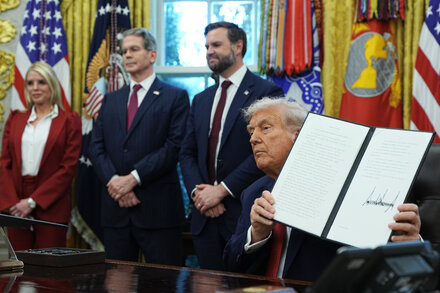Major American allies are reportedly exploring new configurations for global trade, potentially shifting away from U.S.-centric arrangements in response to evolving American trade policies. Discussions among key international partners indicate a growing desire to establish more resilient and predictable trade frameworks that do not rely on Washington’s participation.
The potential realignment stems from concerns among allied nations regarding fluctuating U.S. trade stances, including the imposition of tariffs and a perceived inclination towards protectionist measures. These actions have prompted countries to seek greater stability and diversification in their economic relationships, aiming to safeguard their economies from unexpected policy shifts.
Sources familiar with preliminary discussions suggest that the European Union, along with countries in Asia such as Japan and South Korea, and others like Canada and Australia, are examining avenues to deepen their trade ties with each other and with emerging markets. This could involve strengthening existing bilateral and multilateral agreements, or even forging new alliances designed to bypass traditional routes that heavily involve the United States.
Motivations Behind the Shift
A primary driver for this strategic re-evaluation is the pursuit of supply chain resilience. Recent global disruptions and trade disputes have underscored the vulnerability of highly concentrated supply chains. Allies are seeking to de-risk their trade relationships by fostering a more distributed network of partners.
“The imperative for predictability and stability in global commerce has never been clearer,” stated a senior European trade official, who requested anonymity to speak candidly about ongoing deliberations. “We are committed to open and fair trade, and that means ensuring our businesses can operate within a framework that is not subject to frequent, unforeseen changes.”
Another factor is the desire to reinforce international trade norms and institutions. While acknowledging the historical leadership role of the United States in shaping the global economic order, allies are increasingly willing to take the lead in developing and upholding these norms, even if it means doing so without direct U.S. involvement.
Potential New Trade Architectures
Among the options reportedly under consideration are expanding membership in existing agreements like the Comprehensive and Progressive Agreement for Trans-Pacific Partnership (CPTPP) or negotiating new Free Trade Agreements (FTAs) that focus on inter-bloc cooperation. For instance, the European Union might seek to bolster its trade pacts with nations in the Indo-Pacific, creating alternative avenues for commerce.
The long-term implications of such a significant reorientation could include a redistribution of global economic influence and the emergence of new centers of trade gravity. While these discussions are still in nascent stages, they reflect a profound shift in how American allies view their economic security and their role in shaping the future of international trade.
Source: Read the original article here.





